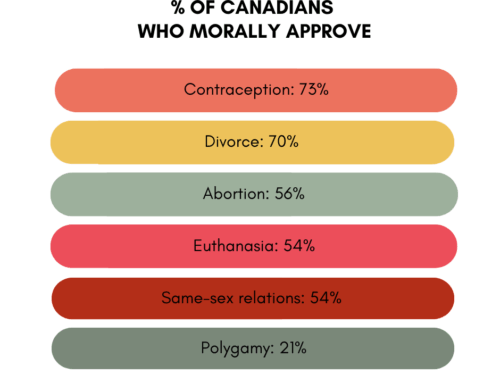On Feb. 24, the Trudeau government tabled legislation that would make Canada’s euthanasia law the most permissive in the world according to anti-euthanasia groups.
Bill C-7 was introduced by Justice Minister David Lametti and, if passed without amendment, the Act to amend the Criminal Code (medical assistance in dying) will liberalize the three-year-old euthanasia law. It will include people who are not terminally ill, permit advance directives in order to allow people to become victims of euthanasia or assisted suicide after they have become mentally incompetent, and open the door to psychological suffering as a reason to access such lethal medical services.
At a press conference, Lametti said, “We’re talking about people … who are suffering, families going through some of the most difficult times of their lives. So when it comes to these deeply personal and complex issues, we must act responsibly and, most importantly, with compassion.” As a backbencher at the time, Lametti voted against his own government’s euthanasia bill in 2016 because he said it did not go far enough.
C-7 was tabled a week after the federal government asked the Quebec Superior Court for a four-month extension to amend the euthanasia law as the six-month deadline to comply with its Sept. 11, 2019 Truchon-Gladu decision striking down the requirement that death be “reasonably foreseeable.” It also allows advance directives so that patients, such as those with dementia, can be medically killed once they lack the incompetence to request euthanasia. Both these changes were requested by Dying with Dignity Canada during the consultations that took place in January. Curiously, there is no record of Dying with Dignity reacting to the tabling of the legislation either to the media or on social media.
The Canadian Medical Association applauded the proposed changes. In a statement signed by CMA president Sandy Buchman, the organization called C-7 “a prudent step forward” and that it supported “efforts to continue to provide greater clarity for physicians and are especially pleased to see the addition of new non-legislative measures to create more consistency of MAiD delivery across Canada.” Not all doctors agree with their professional association. Dr. Kulvinder Kaur said on Twitter that the CMA does not represent all doctors’ views on this and charged it with “continuing to exploit the CMA name.” She also noted that CMA president Sandy Buchman may be in a conflict of interest – or should at least disclose a potential conflict of interest – because he is registered MAiD provider.
Disability rights, anti-euthanasia, pro-life, and religious leaders condemned the federal government’s proposed changes.
Cardinal Thomas Collins of Toronto said C-7 is a “new chapter of death on demand” as “Canada has cast aside restrictions at a far quicker pace than any other jurisdiction in the world that has legalized euthanasia.” In a statement he said that vulnerable persons, especially those with disabilities, “need assisted living, not assisted death.”
In a statement, Living with Dignity and the Physicians’ Alliance against Euthanasia said they “deplore” the expansion of euthanasia and wondered, “Do we collectively seek the most permissive voluntary euthanasia program in the world?” The two groups said that C-7 is “leading step by step to death-on-demand for suffering people in Canada” because it “effectively opens the door to any Canadian who is physically sick and suffering, and who wishes to be legally killed by a doctor.”
While many news articles reported that psychological suffering would not be a reason to request so-called Medical Aid in Dying, Euthanasia Prevention Coalition executive director Alex Schadenberg noted that the law states: “the illness, disease or disability or that state of decline causes them enduring physical or psychological suffering that is intolerable to them and that cannot be relieved under conditions that they consider acceptable.” Schadenberg also points out that Section 2(a) of C-7 only “pretends to prevent euthanasia for psychological suffering” by stating “a mental illness is not considered to be an illness, disease or disability,” because of other provisions that state psychological suffering is a reason to qualify for euthanasia. He also notes that the law does not define mental illness.
Schadenberg also warned that if the contradictory strictures within the law are maintained in practice, the courts would probably throw them out as an unconstitutional form of discrimination.
Schadenberg said that C-7 could be considered discriminatory and therefore violate the Charter, based on differentiated treatment for terminally ill and non-terminally ill euthanasia victims. “Bill C-7 creates a two-track law where a person who is not terminally ill has a 90-day waiting period while Bill C-7 waves the 10 day waiting period for people who are terminally ill. Therefore a person can request and then die by lethal injection on the same day.” Schadenberg said studies show that the “Will to Live” fluctuates over time so eliminating the ten-day waiting period or allowing advance directives does not take into account that patients often change their mind.
Schadenberg said, “The government is wrong to create a two-tier euthanasia law. A future court decision will likely strike down the 90-day waiting period for people who are not terminally ill because this provision represents an inequality within the law.”
Schadenberg also has problems with advance directives because it permits an incompetent person to be killed by a medical practitioner as long as the directive was signed when the patient was competent. Schadenberg said that this provision violates the 2014 Carter decision which struck down the prohibition on euthanasia and assisted-suicide but which required that a person be capable of consenting to die.
Schadenberg said the euthanasia lobby’s main goal was to get advanced consent for euthanasia and “Canada’s Liberal government appears to be working closely with the euthanasia lobby” to give them what they want.
Campaign Life Coalition campaigns manager David Cooke also condemned the euthanasia bill in an action alert to supporters. Noting that the proposed amendments to the law would allow people who are not dying to be euthanized and that it does not require alternatives be attempted first, Cooke said C-7 is “a piece of radical legislation that will vastly expand the Liberal government’s current euthanasia program,” which indicates “both Mr. Trudeau and Mr. Lametti just love the idea of euthanizing Canadians.” The outcome of C-7 is “more weak, hurting, and vulnerable Canadians (being) dispatched.”
CLC and other groups launched petitions opposed to C-7. CLC’s petition said, “No human life is ever ‘unworthy’ of life. No human life is ever ‘beyond hope.’ However, the message of Bill C-7 and Mr. Trudeau’s ever-expanding euthanasia program says otherwise. It says some people are of less value, less worth, and less dignity than others – so much so that they should actually be killed. The petition encourages MPs to vote against C-7.
The 2016 euthanasia law mandated a five-year review of the law to see how it was working. Schadenberg said, “The government should wait before amending the law,” and see what the consultations that are schedule to begin in June bring to light.
Living with Dignity and the Physicians’ Alliance against Euthanasia said that the Quebec government conformed their amendments to existing euthanasia law to conform with the Quebec Superior Court decision; the federal government went beyond what was necessary and that “once anyone is permitted to directly cause the death of another person, there is no safeguard that can prevent this “right” from being extended to groups not initially foreseen.” Their statement noted that when Parliament passed the euthanasia law in 2016, they and other groups predicted the then-existing safeguards would be short-lived.
In a procedural matter in the House of Commons, Conservative MP Rob Moore (Fundy Royal), rose on a point of privilege on Feb. 25 to ask why the contents of Bill C-7 were known by a Canadian Press reporter before being made available to the members of Parliament. “As you know, it is a well-established practice in the House that, when a bill is on notice for introduction, the House has the first right to the contents of that legislation,” Moore said. But he noted “hours before Bill C-7 was read a first time in the House, the Canadian Press published an article that detailed specific information contained in Bill C-7.” The CP story quoted unnamed sources who “spoke on condition of anonymity because they were not authorized to reveal details of the bill prior to its tabling in the House.”
Moore said, “After the sources indicated to the reporter that they were aware of their guilty actions, they boldly and defiantly continued their affront to Parliament by providing even more detail of the bill.” Moore said that the government leaked details of the 2016 euthanasia law also. “It would appear that the Liberal justice team just has not learned any lessons.” In April 2016, the Speaker of the House said it appeared that details of legislation were released to journalists before MPs had the chance to see the bill first, a violation of the right and expectation of MPs.
Moore said once again the Speaker “must conclude that the House’s right of first access to legislative information was not respected.” Speaker Anthony Rota said he would take the privilege under advisement.







